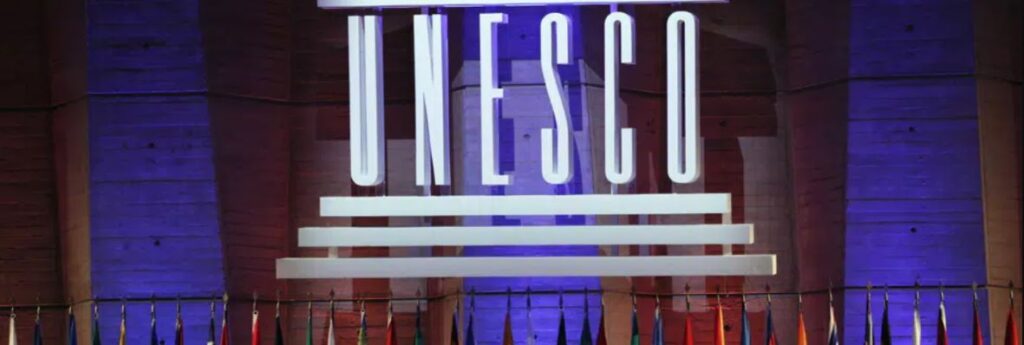United Nations cultural and scientific agency UNESCO, which notably administers the World Heritage program – a significant driver of tourism interest – announced Monday that the United States plans to rejoin, and pay more than US$600 million in back dues.
The move follows a decade-long dispute sparked by the organization’s move to include Palestine as a member.
US officials say the decision to return was motivated by concern that China is filling the gap left by the US in UNESCO policymaking, notably in setting standards for artificial intelligence and technology education around the world.
The US and Israel stopped funding UNESCO after it voted to include Palestine as a member state in 2011, and the Trump administration decided in 2017 to withdraw from the agency altogether the following year, citing long-running anti-Israel bias and management problems.
Applause rang out in the solemn UNESCO auditorium at a special meeting Monday, and delegate after delegate stood up to welcome the news, announced by UNESCO Director General Audrey Azoulay. The return of the US, once the agency’s biggest funder, is expected to face a vote by its 193 member states next month, according to a UNESCO diplomat.
The decision is a big financial boost to the United Nations Educational, Scientific and Cultural Organization, known for its World Heritage program as well as projects to fight climate change and teach girls to read.
Since her election in 2017, Azoulay has worked to address the reasons the US left, through budget reforms and building consensus among Jordanian, Palestinian and Israeli diplomats around sensitive UNESCO resolutions. Azoulay – who is Jewish – won broad praise by UNESCO ambassadors for her personal efforts to address US concerns around Israel in particular.
The US absence plunged the agency into financial uncertainty. UNESCO diplomats described belt-squeezing across agency programs and aggressive efforts by Azoulay to boost voluntary financing from other countries to fill gaps.
Meanwhile, the UNESCO World Heritage program, which bestows covetted “status” on important sites and cultural institutions and practices globally, is a critical instrument of preservation, and an important beacon to travellers, shining a spotlight on both well-known and under-the-radar tourism gems deserving of instutional protection.
The United States previously pulled out of UNESCO under the Reagan administration in 1984 because it viewed the agency as mismanaged, corrupt and used to advance Soviet interests. It rejoined in 2003.

